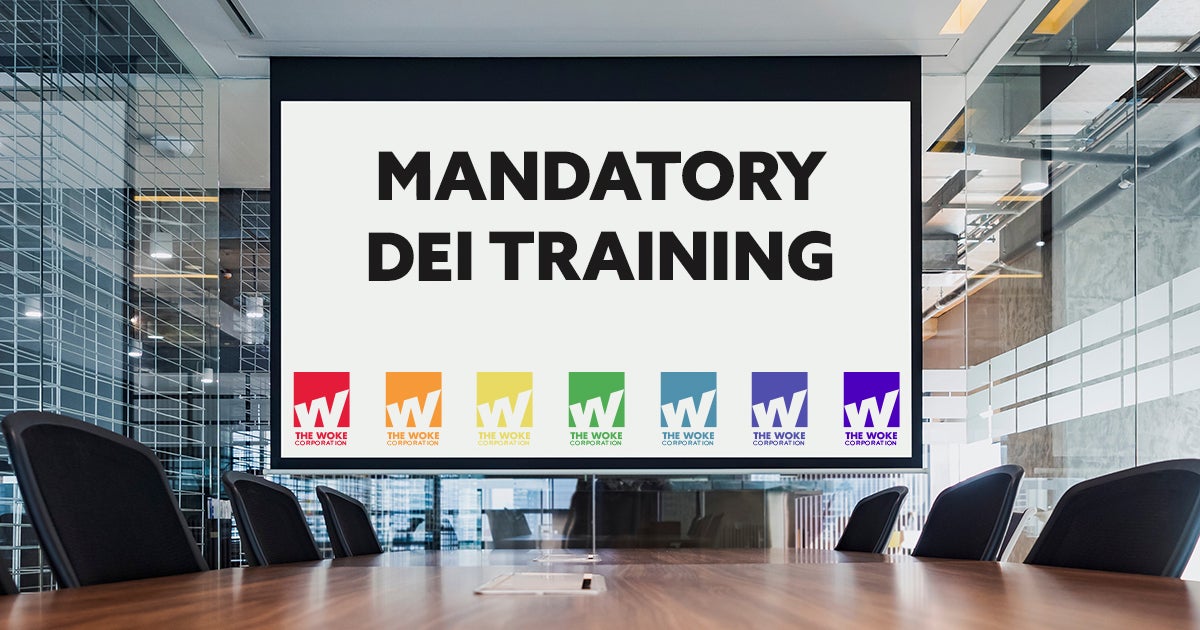
by Jorge Gomez • 5 min read
If you’re a person of faith who works, it’s likely you’ve had to attend—or at least heard about—mandated diversity, equity and inclusion (DEI) training. That’s especially true if you’re working for one of many companies that are going “woke” nowadays.
Maybe you’ve asked yourself if requesting an accommodation or declining to attend one of these trainings might land you in hot water. Or worse, maybe get you fired.
It’s no secret that a hostile cancel culture is growing in corporate America, and religious workers have often been on the losing side. Many of them have been forced to choose between their faith and their livelihood. (As evidence, see what happened to First Liberty clients who were fired by Alaska Airlines, CVS and University of Michigan Health).
But there’s good news for religious employees, given recent changes in the law.
First Liberty Senior Counsel Jeremy Dys was recently featured as an expert guest on The Daily Signal podcast. He discussed how our Supreme Court victory in the Faithful Carrier case (Groff v DeJoy) changed the legal standard for religious accommodation at work.
That unanimous, landmark ruling held that employers cannot deny religious accommodations unless they can prove that accommodating their employees would “result in substantial increased costs in relation to the conduct of its particular business.”
Because of the Groff decision, Dys explains, religious employees can now raise religious freedom complaints against mandated diversity, equity and inclusion trainings if those trainings force an ideology on them or make them less able to live out their faith.
Does this mean that as a religious employee you’ll automatically be able to opt out of mandatory DEI trainings? Not necessarily. But it does mean you do have some level of protection if you start a conversation with your employer.
“Now you can talk to your employer about, ‘Hey, look, can we talk about a different level of diversity or an inclusive program that talks about my faith as well?’” Dys told The Daily Signal. “For the first time in 46 years, we have the right now to seek that accommodation, and the employer has to actually meaningfully engage with you in those conversations.”
“No longer is it like, ‘Well, look, the job is more important than your religious beliefs. Do the job or get out,’” Dys said. “Now it is, ‘We recognize that your religious beliefs are at least as important as your job; I think, actually, more important. Let’s sit down to figure out how we can accommodate your religious beliefs so that you’re a good employee here, as well.’”
“So, employers now have to respect the religious rights of their employees,” Dys adds. “They can’t simply dismiss them because they don’t share the reigning gender ideology of the day.”
Listen to the full podcast episode below:
Across the country, the Groff ruling continues to positively impact religious people in the workplace.
Both houses of the Utah Legislature recently passed HB 396, titled the “Workplace Discrimination Amendments.” It helps clarify what rights religious employees have and when they must be granted religious accommodations.
The legislation “prohibits an employer from compelling an employee to communicate or otherwise act in a manner that the employee believes would burden or offend the employee’s sincerely held religious beliefs.” It also creates “a process for an employer to accommodate an employee’s religious liberties.”
Read More:
The Daily Signal: Christian Employees Can Challenge Mandated DEI Trainings on Religious Freedom Grounds, Lawyer Says
First Liberty: DEI Is No Excuse to Openly Discriminate Against Religious Employees
First Liberty: Faithful Carrier Victory is Already Having a Huge Impact
The Gospel Coalition: Early Court Rulings on Preferred Pronouns in the Workplace
Jackson Lewis: What the Changed Standard for Religious Accommodations Means for the Shift-Based Retail Industry